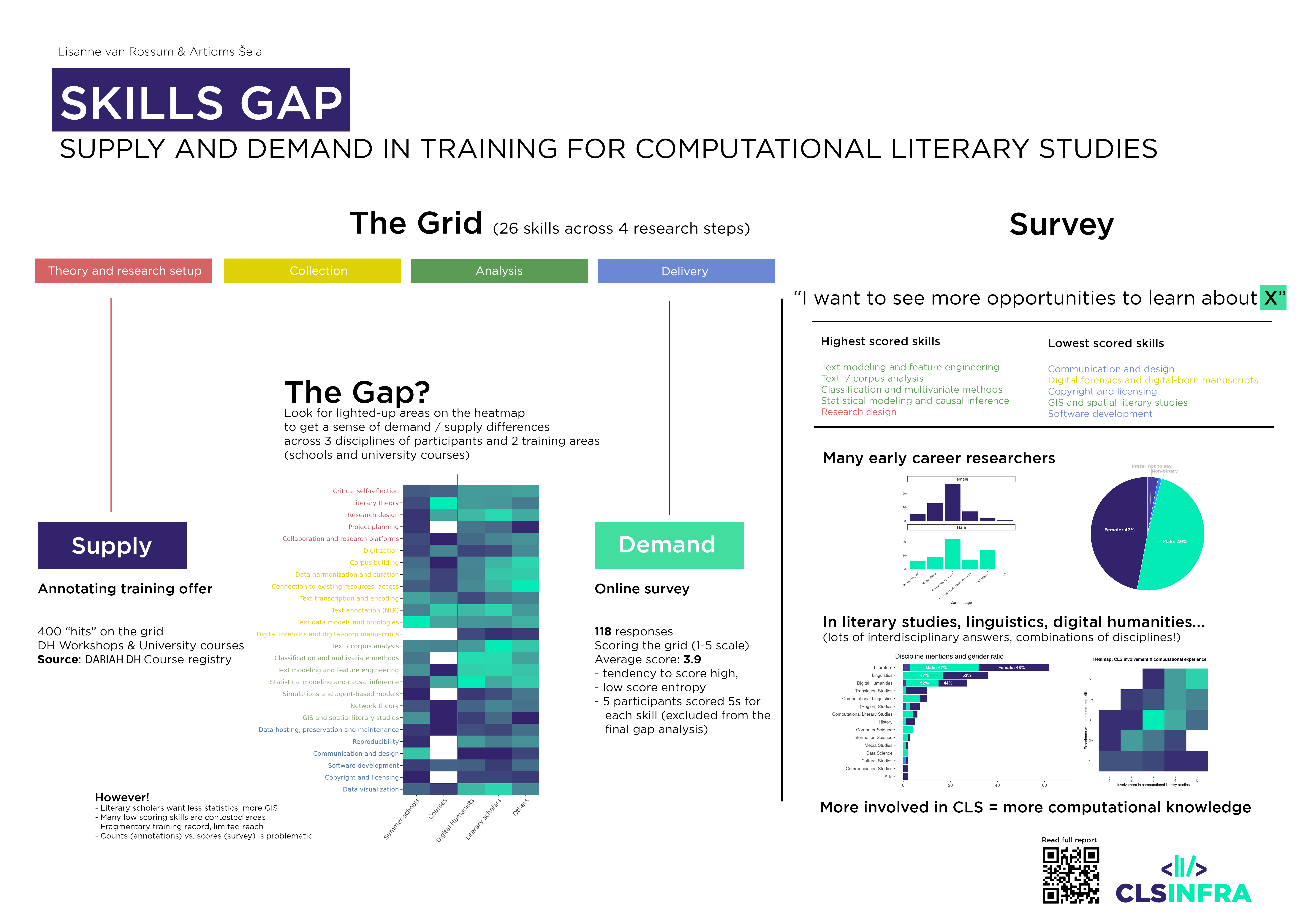Computational Literary Studies Infrastructure
I was a small part of a large infrastructural project. Mostly doing research.
Horizon-2020 project CLS INFRA!
Survey on methods
I’ve participated in putting together Survey of methods in computational literary studies. I wrote parts on analysis and evaluation in literary history that are personally important pieces for me as well.
It was a vast field to cover, so the description is very condensed. Nonetheless, few insights from this survey: methodologically and conceptually the chronological change is an open problem that is now solved using overly simplistic statistical methods. There is much room here to do better. Additionally, and related to the previous issue, the field currently completely ignores simulations and generative modeling; integrating this to our work on literary history can serve the basis of evaluation.
Skill gap analysis, community survey
Previously, together with Lisanne van Rossum (at that time, KNAW), we completed a skills gap analysis in computational literary studies, launched an online survey, and identified areas in CLS/DH teaching that are likely underrepresented. You can read the full report (it’s 70 pages, so I don’t actually recommend it!) or look at the summary poster below.
(You can open the image below in a new tab to get the high-res version.)
